It’s gut wrenching to even think about your dog no longer being in your life. Constantly by your side. Loving them as much as we do only makes it that much more difficult to lose them. But there’s strength in understanding and comfort in preparation. As your dog ages or gets diagnosed with a life threatening illness, there are ways you can prepare to make the experience as positive as possible for everyone involved.

Making Your House Accessible & Comfortable
As your dog ages or his illness progresses there are steps you will need to take to make your home accessible and comfortable.
Your senior or sick dog is going to be sleeping even more than usual. Ensure that they are comfortable as can be by providing a high-quality, orthopedic bed. These beds ease joint pain, make it easier to get in and out of bed, help your dog avoid elbow calluses, and more.
Place slip-free rugs and mats around the areas where your dog walks. This will prevent falls and make it easier for your dog to get to his food, water, or bed. Make couches or beds accessible with a ramp or stairs. Of course, the time will come when he can no longer climb those either, but they can be of great help until then.
Keep her bed, kennel, comfort items, and dishes close at hand. If you have a two-story house, move her onto the ground floor. If there is an entry and exit to your home that is free from steps, plan to use that door for getting your baby in and out of the house.
Provide a Place to Go
It’s very common for a dog to become incontinent as they age or become increasingly sick. Your dog will feel terrible for the “accidents” but they come with the territory. When it happens, ensure her there is nothing to be sorry about.
Place absorbent pads near the bed, doors, and any place where she frequently loses bladder or bowel control. This will give her a reachable place to go, sparing her humiliation. If your dog loses control in her sleep, simply place a pad underneath her bottom while she is laying down.
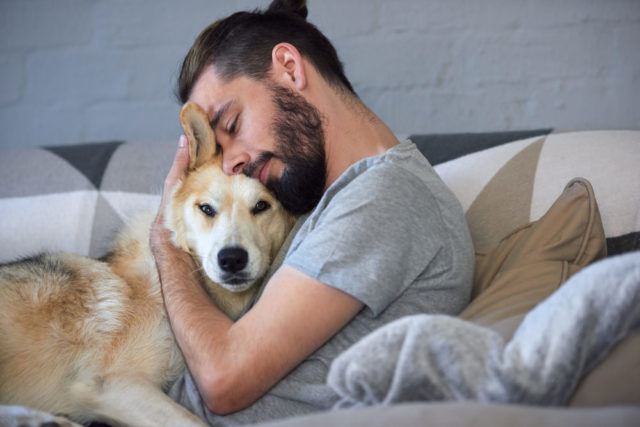
Economic Considerations
Taking care of an aging or ill dog comes with increased expenses that were not there during your dog’s healthier or younger days. Prepare yourself for the additional costs by setting aside money each month that can be used for medical procedures or medications.
There are many insurance options available that can ease the economic burden of medical expenses. These policies allow you to budget more easily and takes the stress out of your dog’s healthcare from a financial standpoint. Talk to your vet about policies that may work for you and your dog. Be aware, however, that most pet insurance plans have exclusions for pre-existing conditions so you need to have an insurance policy in place before a diagnosis.
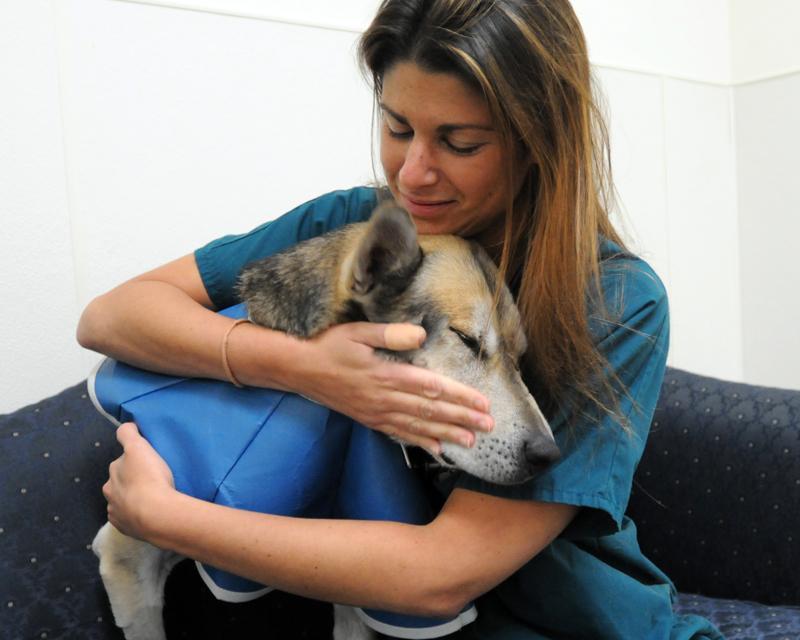
Making Nutritional Changes
It is highly likely that your dog will have a change in appetite and/or food tolerance as things progress, either simply due to age or because of disease. Understand that these changes are absolutely normal and to be expected. Monitor your dog’s eating habits and make adjustments as needed.
As dogs age, their metabolism slows down. This means they need fewer calories. Adjust the portion size to account for that. Also, softer foods may be easier to chew and digest than kibble.
You may want to add supplements to your dog’s diet that can help with pain, mobility, and vitality. Arthritic dogs, for example, can benefit from a supplement containing turmeric. Talk to your vet about supplements and dosages unique to your dog’s situation.
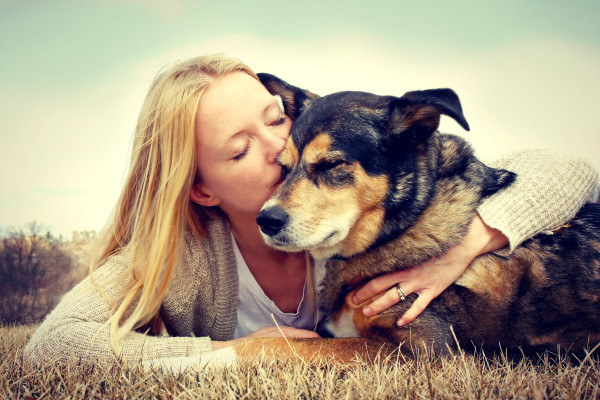
Make the Time You Have Left Count
Give yourself the satisfaction of making the time you have left with your pup really count. As her health allows, get out to her favorite places. Let her eat her favorite foods. Take photos of her and of you together. Capture quiet moments that your children or other family members spend with her. These memories and mementos will be treasured and revisited always.

Know When It’s Time to Say Goodbye
When the time comes to release your dog from this life, you will know. If you’re unsure, your vet will be able to provide guidance but ultimately, the decision to euthanize will rest with you.
Most people arrange for euthanasia to be performed at the vet’s clinic. Your vet will explain exactly what to expect and give you the time you need to say your final goodbyes. Although your heart will be breaking, staying with your dog through this process will be best for both of you. You will provide your loved one comfort as he eases out of this life and he will provide you the same. Costs vary but you can expect to spend $150-$300 on the medications and procedure.
Another option is to have your dog euthanized at home. There are countless vets who provide this service to families. The vet will come to your house with all of the necessary medications and supplies. After you’ve had a final goodbye, the procedure will begin and be carried out in exactly the same way as it would in your vet’s office. Many families choose this option because of the privacy and comfort you can only have at home. When you are ready the vet will take the body away. This option is more expensive and will run $300-$400.
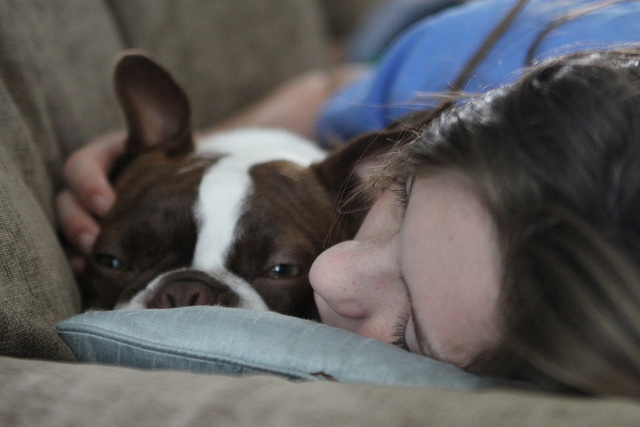
Memorializing Your Loved One
As you prepare for the passing of your beloved pup, you should consider what you want to do with the body. Whether your dog is humanely euthanized or passes on his own, there are options available to you.
Naturally, if you have the appropriate space and there are no ordinances preventing you from doing so lawfully, you can bury your dog on your property. You can have a burial service with those who loved your dog best, which can be especially beneficial to children who may need that closure to move on in a healthy way.
There are many cemeteries dedicated to animals. Check to see if there is one in your area if you’d like to have a place where you can revisit the memories shared with your dog and erect a marker that memorializes her life and death.
Many families opt to have the remains of their dogs cremated. If your dog passes at home, you can bring the body to a crematorium that handles animal cremations directly or you ca make arrangements with your vet. If you cannot handle moving the body on your own, enlist the help of friends or neighbors who will be glad to be of service to you during this tough time.
After the body is cremated, you can request that the ashes be returned to you. These can be kept safe in an urn. Oftentimes, you can purchase a memorial with your dog’s name and a paw imprint to keep with you at home. If you’d rather not receive the remains back, many crematoriums will offer to scatter the ashes over a dedicated location used for exactly that purpose.
Finally, consider getting a meaningful and personalized item that you can keep with you to remind you of your friend who is no longer here. A key chain with a sweet quote or an engraved photo frame can bring comfort and in time, a smile instead of tears.
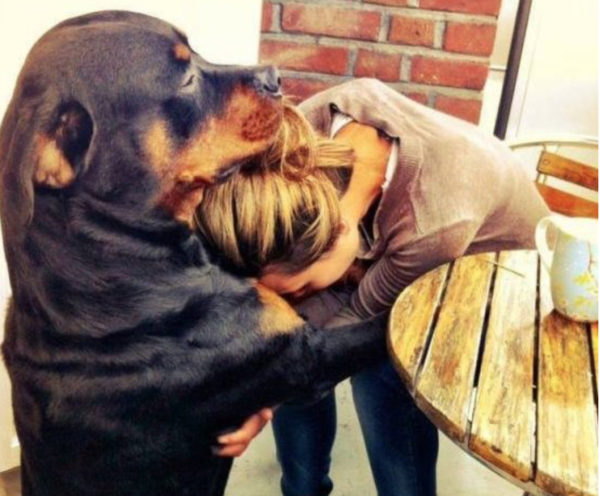
Give Yourself Time and Space to Grieve
Losing your dog can be just as emotionally devastating as the death of a human family member or friend, if not more. Many people are not prepared for just how hard the hit will be emotional. Some even question why they could feel so sad for such a long period of time when it was “just a dog.”
But it wasn’t “just a dog.” He or she was your companion, your friend, your source of comfort, and your family member. Allow yourself all the time and space you need to grieve the loss. It will be very hard, but in due time, you will be able to remember your dog without falling to pieces.
If you are facing the imminent loss of your dog, our hearts go out to you. Knowing what you can do to help your dog and yourself through the process will ease the suffering for you both.
 Toledo, United States.
Toledo, United States.